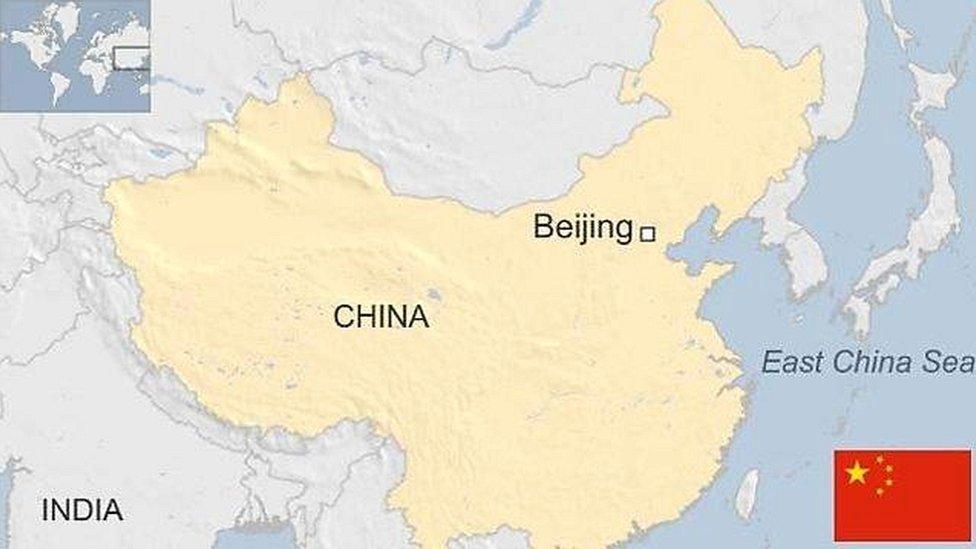Tiananmen: Why is the square so politically sensitive?
- Published
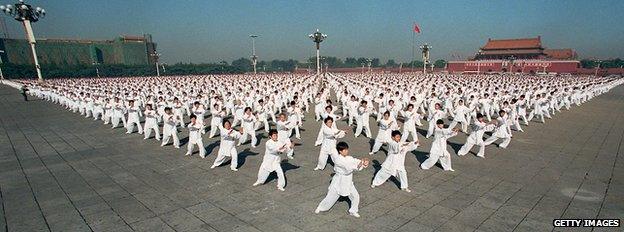
Tiananmen Square, the size of 70 football pitches, is seen as the political heart of China
The car crash which killed five people and injured 38 others in Beijing's Tiananmen Square on Monday happened at a politically sensitive time - and in the most politically sensitive place in China.
It happened just a few weeks before the ruling Communist Party is to hold a major meeting to unveil its blueprint for new reforms.
The meeting, officially termed the third plenum of the 18th Party Congress, also marks the beginning of the time for President Xi Jinping - who assumed power late last year - to be in full control of the world's most populous country.
Whether the crash is an accident or a suspected suicide attack by Uighur separatists from the Xinjiang region, the mere fact that it happened in front of Tiananmen Square has inevitably turned it into a political story. That is because of the uniquely political nature of the square.
It is indeed one of a kind in the world. The word Tiananmen means "gate of heavenly peace". However, it is anything but heavenly peace.
The square was a playground for the Forbidden City before the last emperor was evicted during the 1911 revolution led by Dr Sun Yat-sen.
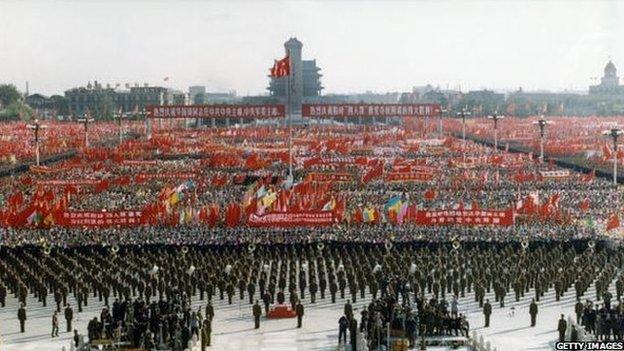
Tiananmen Square has witnessed every major turn of history in the People's Republic
It has been used as a political venue ever since. But only from 1949, when the Communist Party came to power at the end of a bloody civil war, did the square start to assume real significance in politics.
On 1 October 1949, Chairman Mao, standing on the rostrum above the front entrance to the Forbidden City, proudly declared the founding of the People's Republic to a packed and excited audience in the square.
To many people at that time who dreamed about a new China, Tiananmen Square was a Mecca, the holiest place on Earth.
The square was considerably enlarged several times during the first decade of Communist Party rule, to reach its present scale of 440,000 sq m (4,736,000 sq ft) - the size of roughly 70 standard football pitches. It can accommodate 600,000 people at one time.
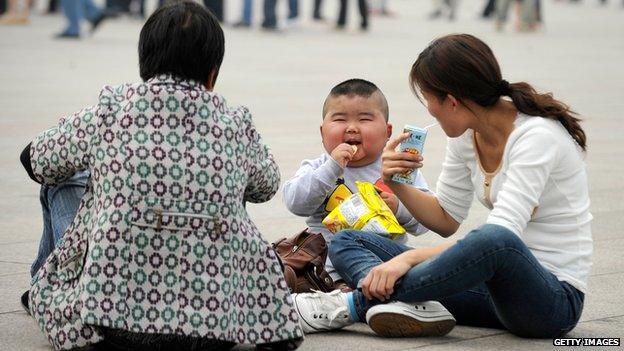
There are no benches in the square for people to sit on
It is not supposed to be a place for people to relax and socialise. There are no public benches for visitors to sit on, nor trees nor any shelter from the sun or rain. And no toilets either. The Communist Party redesigned it with only one purpose - to serve politics on a grand scale.
If there was a video camera that was able to continuously record what has happened in the square since 1949, then you would have a complete and comprehensive record of the People's Republic, as every major turn of history has either been seen or felt there.
Tiananmen Square has become world-famous largely due to a single event in 1989. On 4 June that year, the Chinese government sent in soldiers and tanks to crush a student-led pro-democracy protest there. It ended with many people killed and injured.
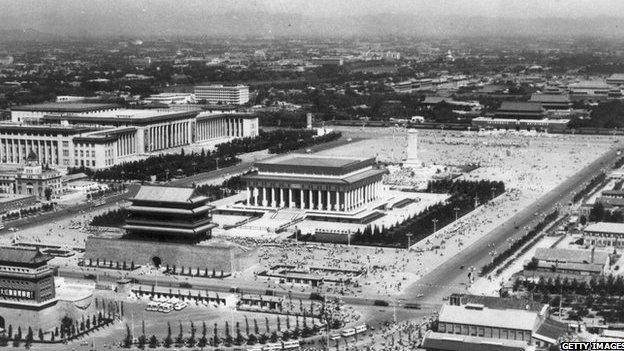
Tiananmen Square used to be freely accessible from all sides
Tiananmen Square used to be an open ground, freely accessible from all sides. On hot and humid summer evenings, Beijing residents would come and sit on the ground in the square to cool down. A lot of people also used to fly kites in the square - a popular hobby for many local residents.
But now the square has been turned into something like a fortress. Iron railings have been erected around it and access has been restricted to four underground tunnels at its four corners. Security checks are in place to stop any potential trouble-makers from entering. Closed-circuit TV cameras are installed in many places for the authorities and police to monitor the square 24/7.
Tiananmen Square has assumed a role which was not planned and certainly not desired by the Communist Party. It has become a venue for people to air their grievances. Rights activists and opponents of the regime have used the square to openly challenge the party.
At a time when the Communist Party is facing a growing crisis over the legitimacy of its rule, it is obsessed with social stability.
It fears that any protests and demonstrations in Tiananmen Square will be perceived as a sign of party weakness. It is ready to use all available means to stop protests in the square before they escalate out of control.
It is still not known whether Monday's car blaze was an accident or a desperate attempt to make some sort of political statement. One thing is for sure - Tiananmen Square will only become even more fortified.
- Published29 October 2013
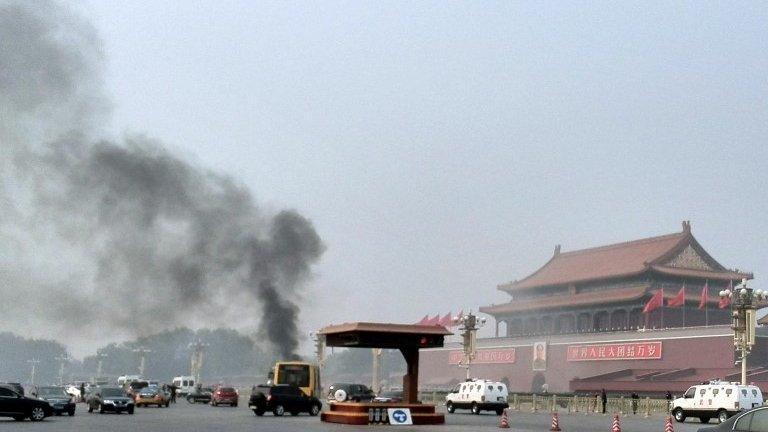
- Published25 August 2023
